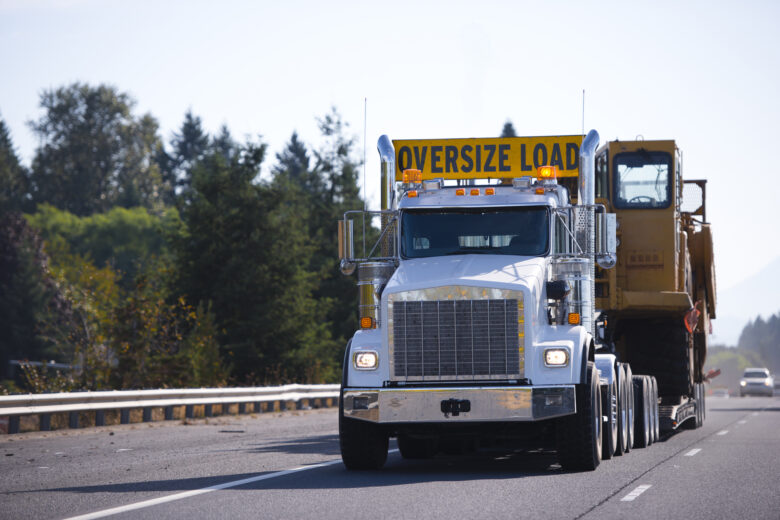When you think about starting a business in the trucking industry, one of the easiest options that come first to mind is becoming an owner-operator.
So, who is an owner-operator?
An owner-operator is a person who leads a trucking business with their own tracks, combining the jobs of the truck driver, manager, and tax accountant, more: https://fleet.care/.
Different ways of running a trucking business

Source: tenstreet.com
As an owner-operator, your job will include finding loads, loading and unloading your trucks, figuring out the best routes, scheduling everything, and driving ‒ well, everything that a trucking company does. Sure, being an owner-operator is not the only option for starting a trucking business.
The main difference between this option and being an individual contractor is in the definitions and job requirements. If you’re an owner-operator, you’re also an independent contractor. It doesn’t work in opposite direction, though ‒ not every independent contractor is an owner-operator as they sign contracts with different carriers for specific jobs. Basically, a contractor works on a legal agreement basis with a certain trucking company, and then moves on to the next one or continues to collaborate with the previous one.
It doesn’t mean they’re counted as company drivers, though, as company drivers are officially long-term employed by the trucking company and are provided with company’s trucks.
Advantages of being an owner-operator

Source: america1logistics.com
Doing everything on your own might sound tiring, but being an owner-operator actually has many benefits to it.
For example, you and only you get a say in the choice of vehicles and equipment. You are also fully responsible for your income ‒ if you keep up with industry trends, manage your time perfectly, and get the best deals, you can earn more than $200000 per year.
This means you’re a boss for your own self. It’s full freedom of business choices and decisions. You also have more time to develop your business and earn more instead of taking care of employees’ paperwork.
Besides, you get a flexible schedule that is only up to you to decide on. You can choose your working days and hours yourself, leaving enough time to spend with your family.
Another benefit of being an owner-operator is better networking. You can find as many partnerships as possible because people will know that you can find a window in your schedule for them, not being tied to the company’s hours.
Sure, there are also many challenges: business paperwork, taxes, expenses, scheduling ‒ but it’s nothing that can’t be dealt with. For example, you can order dispatch and tax accounting services to make everything easier for you.
Becoming an owner-operator: a step-by-step guide

Source: nuwireinvestor.com
So, how do you become an owner-operator?
Let’s take this step by step, focusing on the most important.
- Set short-term and long-term goals. Be realistic and ask yourself whether you’re ready, what you expect, and how will you find jobs. Evaluate your opportunities and then set your first objectives: launch a registered business, find first loads, earn your first profits.
- Acquire Department of Transportation and Motor Carrier numbers first. If you already have a USDOT number, getting an MC one is still a must. Also, this is the best time to decide what kind of insurance you need and to eventually buy one. You might also want to check US DOT and FMCSA regulations for trucking business ‒ it’s really important to comply with them.
- Minimize your expenses. Starting your own trucking business can be quite expensive, so you might want to think about planning your budget effectively, increasing your profits while reducing spending. You can save on fuel by driving under the speed limit, you can also take cautions and comply with regulations to avoid paying extra fees. Also, be gentle with your engine ‒ the more careful you drive, the less money you will spend on truck maintenance.
- Find a good truck. Buy or lease a vehicle in a good condition ‒ this will save you from regular visits to maintenance stations. If you have a good credit score, you will have better conditions for a truck lease. Getting a better interest rate is possible if you have a good credit history, a longtime residence at a certain address, and stable job background.
- Plan your net profits. There is a golden equation for that: gross revenue with taxes is equal to your revenue per mile minus cost per mile. The result will be your net profit. In order to achieve that, you can cut your fuel consumption by choosing shorter routes, and doing truck checks frequently to prevent major issues that need serious repairs. Also, you might want to reduce truck idling ‒ the more time you spend without moving with your engine turned on, the more extra fuel you spend. The last but not least option to optimize your profits is to drive safer. Accidents will cost you a lot, so it is the exact case when it’s better safe than sorry.
Once you have your trucking business registered and ready, it’s time to find your first loads.
Finding jobs as an owner-operator

Source: powersourcetrans.com
Finding your first loads might be difficult at the very start, but once you start taking new jobs, be as responsible as possible to prove you’re a trustworthy partner. The better impression you make, the more clients you will have. Maintain good relationships with your clients and everyone you’re working with ‒ when you are seen as a reliable contractor, people start recommending you to others.
You can also search for new jobs on load boards. Don’t hesitate to contact good offers even if you don’t have much experience ‒ if you get this load, this will be a huge investment in your professional growth as an owner-operator.
Finally, you can stick to a certain industry and work with a few companies that provide you with regular loads. It’s simple, it’s reliable, and also, you’ll be counted as a trusted partner that can be easily recommended to other people looking for a trustworthy carrier.
Your next steps
Your business has to develop further. Reach out to colleagues, get a better insight into the industry, and meet more people within it. The more you share your experience and listen to others, the more solutions you have in potentially tricky situations.
